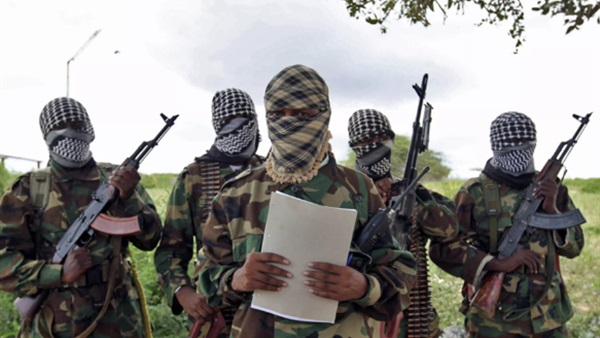Beneficial harm: Climate change strikes terrorist Al-Shabaab in Somalia

A strong blow to the terrorist Al-Shabaab movement in Somalia may be the end of their criminal activity in the country, after the movement had controlled several regions of Somalia for years and spread terror among the population.
Curse of drought
Climate change has turned into a curse that struck the Al-Shabaab movement with death after drought prompted tribes that were subject to the al-Qaeda-affiliated terrorist organization to rebel against them and refused to pay taxes after the wells dried up, the land became desolate, large numbers of livestock died, and death by gunshot became better than starving to death. Drought usually plays a role in favor of terrorist groups, helping them recruit more followers angry at their governments, similar to what is happening in the Lake Chad region, but the situation is different in Somalia.
Magic turns against the magician
The Al-Shabaab movement tried to exploit the drought and climate change to its advantage by recruiting more children and followers in exchange for food and a little money, which it collects from taxes and royalties. But “the magic has turned against the magician,” as the Somalis are fed up with the high taxes and royalties that the movement collects from them despite the famine striking the country, which the United Nations describes as one of the worst famines facing the Horn of Africa over the past 70 years.
Provoking the population
Given its control over the local trade routes between the states and regions, Al-Shabaab imposes taxes on merchants to allow them to cross and pass to their destination, which angered the merchants and tribes. Al-Shabaab amplified the displeasure of the population, who were afflicted by drought and desertification, when it started filling in the wells as a kind of scorched-earth policy. The terrorist movement's failure to comprehend the extent of the impact of extreme climate changes on people's thinking after the drought affected their daily sustenance made it lose its popular base and some of its alliances with the tribes of the central region.
Revolting against movement
These extremist practices pushed the tribes, especially in the center of the country, to revolt against the movement with the support of the country's president, Hassan Sheikh Mohamud, who has a more strategic vision in combating the Al-Shabaab movement intellectually and economically, and not only fighting it militarily, as the Somali army supported the tribes in their revolt against the movement. Mohamud realizes that he can only maintain the liberated towns with the support of the local tribes, who know the geography of the land better than the soldiers and can protect their members and their families against the guerrilla warfare that the movement excels at. The tribes can also provide logistical support to the army, especially in terms of information, as well as dry up the movement’s popular incubator and its sources of funding in order to weaken its ability to recruit and pay the salaries of its members.
Until recently, Al-Shabaab controlled large areas in the center and south of the country, up to the Kenyan border in the south and the Ethiopian border in the west. When President Hassan Sheikh Mohamud came to power on May 15, 2022, he pursued a hybrid policy in combating Al-Shabaab, and he succeeded in liberating dozens of regions, most of them in the center of the country. But vast areas in the south are still under the movement’s control.
In 2011, humanitarian aid agencies and civil society organizations launched the Charter to End Extreme Hunger at the United Nations in New York, which clearly outlines five steps that must be taken to avoid starvation. Since then, it has been endorsed by the United Nations, world leaders and dozens of humanitarian organizations, but the 2011 famine scenario has become closer to realization, perhaps more severely due to drought.
Meager rain
The past four rainy seasons in Somalia have seen very low levels of precipitation. It is very likely that the performance of the fifth season will also be substandard, and this situation cannot help the crops grow to their full potential, and the herds of camels, goats, and cattle do not have enough vegetation to eat, and there is no water available to drink. Millions of livestock have already perished in the current drought.
Climate change reinforces this persistent lack of precipitation, and Somalia ranks second after Niger in terms of exposure to the adverse effects of climate change, which is likely to cause more droughts in the country, affecting a larger area of land, while reducing regular rainy seasons.





